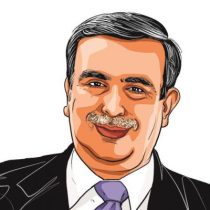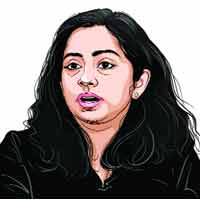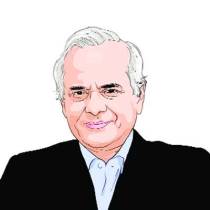The significance of the election in Chhattisgarh, despite its size, is three-fold. Of the five states going to polls, it is a state where the incumbent Congress is best placed to retain power.
In the 2018 Chhattisgarh Assembly elections, the Congress emerged victorious, ending the BJP's 15-year rule in the state. The Congress secured a landslide win, capturing 68 seats with 43.04% of the vote share. Meanwhile, BJP's seat tally was significantly reduced to 15, and its vote share dropped to 32.97%. Bhupesh Baghel, who led the Congress's campaign, became the CM.
For 2023 assembly elections in the state, Congress is banking on its successful promise of a 'karza maafi (loan waiver)' for farmers, which proved to be a winning strategy in the 2018 elections. The party is emphasizing various pro-farmer initiatives, including offering a bonus above the minimum support price (MSP) for paddy and the Gothan scheme.
The party has fielded Bhupesh Baghel from the Patan constituency, indicating his role as the party's face in the elections. Deputy Chief Minister T S Singh Deo is contesting from Ambikapur. Chhattisgarh Congress President and Lok Sabha MP from Bastar, Deepak Baij has been fielded from Chitrakot.
As for the BJP, Raman Singh the longest-serving CM of Chhattisgarh, with six terms in office, has been fielded from Rajnandgaon. Former Congress leader, Vijay Baghel is contesting against incumbent CM Bhupesh Baghel in the Patan seat. State BJP President Aron Sao who comes from the OBC Sahu Samaj and has been fielded from Lormi. Kedar Kashyap a three-time MLA, hails from Bastar and is known for his vocal stance on Hindutva issues. Kashyap is raising concerns about tribal conversions in Narayanpur.
Chhattisgarh sets itself apart due to its significant tribal vote. Roughly one-third of the state's legislative seats are reserved for Scheduled Tribes (STs). One of the notable challenges in southern Chhattisgarh is the presence of Naxalite-Maoist strongholds. The fight against left-wing extremism (LWE) has been a recurring issue in the state's elections. In the previous year, several districts in Chhattisgarh reported instances of LWE-related violence, with Bijapur, Dantewada, and Sukma being among the most affected areas.









